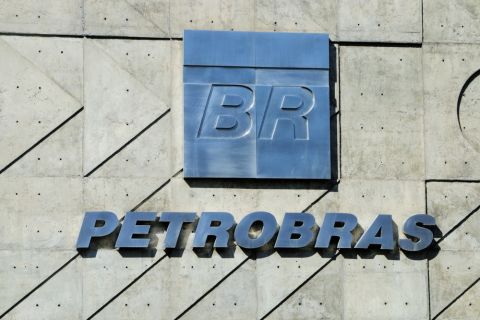Clyde Russell, Reuters
Saudi Aramco’s decision to cut prices for lighter grades of oil for customers in Asia is a sign of just how seriously the world’s top crude exporter is taking its battle with U.S. shale and other producers outside last year’s move to cut output.
The Saudi Arabian state oil company lowered the official selling price (OSP) of its benchmark Arab Light grade by 30 cents a barrel for May cargoes destined for Asia, which buys about two-thirds of the kingdom’s exports.
This took the OSP to a discount of 45 cents a barrel to the regional benchmark Oman-Dubai. It was the second straight month that Aramco cut the price, even though the Saudis are the major player in the agreement between producer group OPEC and its allies to cut output by 1.8 million barrels per day (MMbb/d) in the first six months of the year.
Aramco also reduced the OSP for its Arab Extra Light grade by 35 cents a barrel to a premium of 60 cents over Oman-Dubai for May-loading cargoes for Asian customers and for Super Light by 20 cents. In contrast, the OSPs for Arab Medium and Heavy were left unchanged.
It's worth noting that Arab Light isn’t actually a light crude in the mold of global benchmark Brent, as its API gravity of 32-33 degrees makes it a medium grade, compared with Brent’s light 38.3 degrees.
But Arab Extra Light and Super Light are more directly comparable to Brent, and they both saw price reductions.
It appears that Aramco, mainly a producer of medium to heavy grades, is responding to the light grades of crude swamping Asian markets as U.S. producers ramp up shale output and West Africa increases production.
Another way of looking at it is by noting the difference between light and heavy prices in Asia.
The main way of doing this is via the Dubai-Brent exchange for swaps, which measures the premium of the lighter grade over its heavier Middle Eastern counterpart.
This has been on a narrowing trend this year as heavier grades became more scarce following output cuts by OPEC and its allies, including Russia.
The premium commanded by Brent dropped from $4.65 a barrel in January 2016 to just $1.08 on Feb. 28, a 17-month low.
When the premium of Brent over Dubai is declining, Aramco has in the past adjusted its Asian OSP lower as well, which acts to keep its crude prices relatively constant between regions.
However, since the Feb. 28 low, the Brent-Dubai swaps have been trending modestly higher, reaching $1.28 a barrel on April 4.
In theory, this should have resulted in a small increase in the Saudi OSP, or perhaps steady prices, rather than the price cuts actually delivered.
Light Oil Push
This indicates that the Saudis are pushing their lighter grades into Asia at competitive prices. Physical oil traders also report that there is no shortage of light crude and cargoes are trading at discounts to their OSPs.
It seems that in Asia the output cuts by OPEC and its allies have shifted the battleground to lighter grades of crude, and the reason is starting to show up in import figures.
Data compiled by Thomson Reuters Supply Chain and Commodity Forecasts indicates that Middle Eastern producers are losing ground in Asia.
The Middle East’s share of Asia’s crude imports in March was 61.5% down from as high as 65.9% as recently as January, according to vessel-tracking and port data.
In contrast, the share from exporters in the West, which includes U.S. shale, Canada, Brazil and even cargoes from Europe's North Sea, rose to 19.7%, up from 17.9% in January, and the second-highest share in the past year, behind only December’s 19.9%.
It appears as if the Saudis are attempting to maintain market share in Asia by trying to match the pricing and availability of lighter crudes from producers outside the output agreement between OPEC and its allies.
At the same time, they are reducing shipments of heavier grades of crude to meet their commitments to reduce overall output.
If this trend continues, it’s possible that Asian markets will end up with a surplus of lighter crudes and a deficit of heavier grades, which could conceivably send the Brent-Dubai swaps into a discount for the first time in seven years.
Recommended Reading
Texas Earthquake Could Further Restrict Oil Companies' Saltwater Disposal Options
2024-04-12 - The quake was the largest yet in the Stanton Seismic Response Area in the Permian Basin, where regulators were already monitoring seismic activity linked to disposal of saltwater, a natural byproduct of oil and gas production.
Petrobras to Step Up Exploration with $7.5B in Capex, CEO Says
2024-03-26 - Petrobras CEO Jean Paul Prates said the company is considering exploration opportunities from the Equatorial margin of South America to West Africa.
Strike Energy Updates 3D Seismic Acquisition in Perth Basin
2024-04-19 - Strike Energy completed its 3D seismic acquisition of Ocean Hill on schedule and under budget, the company said.
E&P Highlights: March 11, 2024
2024-03-11 - Here’s a roundup of the latest E&P headlines, including a new bid round offshore Bangladesh and new contract awards.
E&P Highlights: Jan. 29, 2024
2024-01-29 - Here’s a roundup of the latest E&P headlines, including activity at the Ichthys Field offshore Australia and new contract awards.




